Editor:
Brandon Sweet
University Communications
bulletin@uwaterloo.ca
Faculty of Arts take Convocation's centre stage today

More than 1,450 students from the Faculty of Arts will cross the Convocation stage during three ceremonies today. 1,324 undergraduates, 205 master's, and 17 PhD candidates will receive their degrees and diplomas today.
The first ceremony takes place at 10:00 a.m. today.
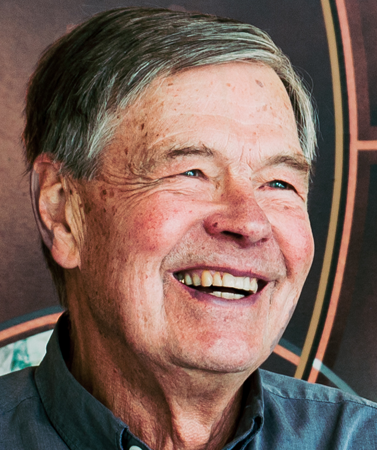
Anindya Sen, Professor, Department of Economics, will present John Helliwell for admission to the degree of Doctor of Letters, honoris causa. Acclaimed for his work in macro-economic modelling, energy economics and policy, and global trade flows, John Helliwell has received honours that include Fellow of the Royal Society of Canada, Distinguished Fellow of the Canadian Institute for Advanced Research, and Officer of the Order of Canada. His contributions to the annual World Happiness Report, a United Nations publication that ranks countries according to national well-being, have been influential in creating government policies that strive toward sustainable development and look beyond the gross national product and per capita income.
John Helliwell will address convocation.
The second ceremony begins at 2:30 p.m.
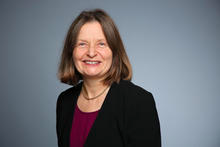
James Skidmore, Director, Waterloo Centre for German Studies, will present Alice Kuzniar for conferment of the title Distinguished Professor Emerita. Alice Kuzniar is one of the leading figures in German studies today, and is well known for her scholarly work in the earlier periods of German literary history, especially German classicism and romanticism. She is a noted film scholar, both in German-language film and world cinema. She is also well known as a leading thinker in the field of cultural studies, producing ground-breaking work in the areas of gender and queer studies as well as animal studies. Kuzniar’s contributions have been recognized with a University research chair, two Alexander von Humboldt fellowships, two Outstanding Performance awards from the Faculty of Arts, and the Excellence in Arts Research Award
Dan Gorman, Chair, Department of History, will present James W. St. G. Walker for the conferment of the title Distinguished Professor Emeritus. James Walker has been widely recognized for his pioneering work in African-Canadian history, human rights, Holocaust studies, race relations, Indigenous history, and antisemitism, as well as immigration and other Canadian public policies. His publications have been widely recognized and his book The Black Loyalists was republished in 2017 by University of Toronto Press as part of the Canada 150 Collection, a collection of outstanding books that have shaped Canada as a nation. Walker’s contributions to Canadian society have been recognized with honours that include the Bora Laskin National Fellowship in Human Rights Research, Fellow of the Royal Society of Canada, and Member of the Order of Canada.
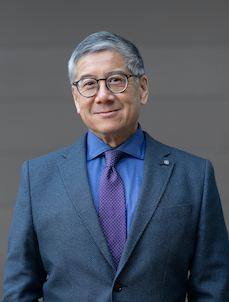
Douglas Peers, Acting Dean, Faculty of Arts, will introduce Geoffrey Fong, Professor in the Department of Psychology and Public Health Sciences to address convocation. Geoff Fong is renowned internationally for his pioneering research on population health and his leadership as founder and chief principal investigator of the International Tobacco Control Policy Evaluation (ITC) Project – a project involving over 150 researchers across 31 countries. His contributions to reducing the global tobacco epidemic include research on improved risk messaging on tobacco products alongside his work with international governments to adopt national tobacco-reduction policies and practices. One of the top-cited researchers in the world, Fong has been recognized with honours that include Fellow of the Royal Society of Canada, O. Harold Warwick Prize, the Governor General’s Innovation Award (ITC Project), and Officer of the Order of Canada.
Ola Idris Ali will deliver the valedictory address.
The third ceremony takes place at 6:30 p.m. tonight.
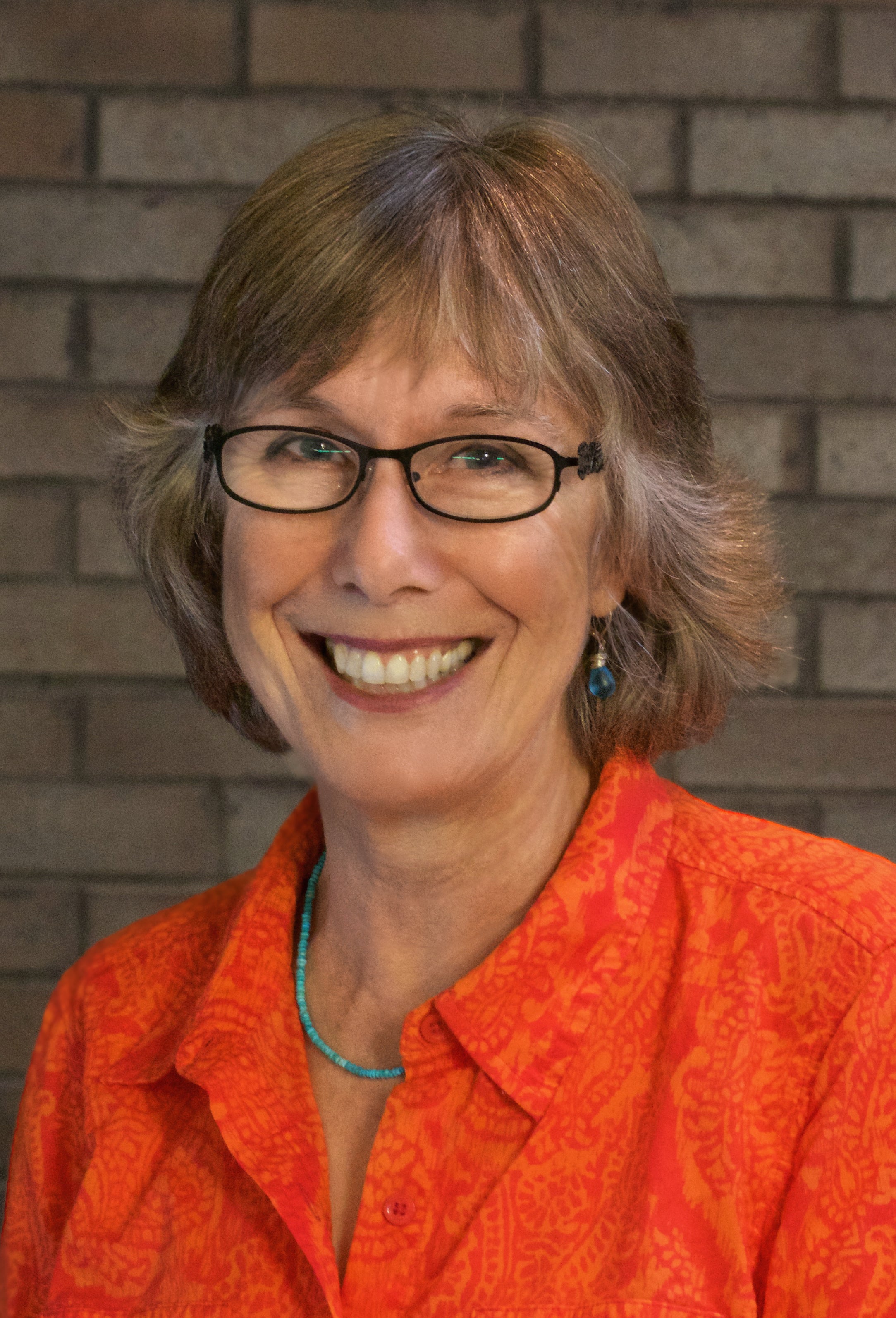
Douglas Peers, Acting Dean, Faculty of Arts, will present Sally Gunz for the conferment of the title Honorary Member of the University. Professor Sally Gunz is recognized for her teaching and research excellence in legal studies and ethical responsibilities for professionals. She exemplifies exceptional service through her work with the Faculty Association of the University of Waterloo (FAUW) and her contributions to institutional policy development. Service contributions include president and past president of FAUW, chair of the Academic Freedom and Tenure Committee, and president and former president of the Canadian Academy of Legal Studies in Business. Honours and awards received in recognition of her excellence include the University of Waterloo Outstanding Performance Award, the Canadian Association of University Teachers Dedicated Service Award, and the Academy of Legal Studies in Business Kay Duffy Memorial Award.
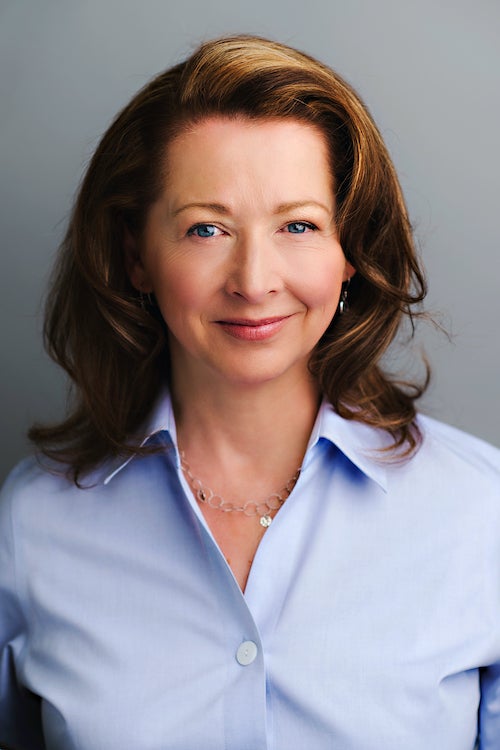
Steve Fortin, Director, School of Accounting and Finance, Faculty of Arts will present Carol Leaman for admission to the degree of Doctor of Letters, honoris causa. Leaman is an entrepreneur, thought leader, and disruptor in the corporate learning space. She has been the CEO of successful businesses such as PostRank Inc., RSS Solutions, and Fakespace Systems, and has overseen the acquisitions of numerous companies. In 2013, she received the prestigious designation of Fellow of Chartered Professional Accountants (FCPA) and is currently the CEO of Axonify. Leaman continues to contribute to the high-tech industry by serving as an advisor on several boards, and her articles appear in many leading learning, business and technology publications. Leaman is also the recipient of the Sarah Kirke Award, the Waterloo Region Entrepreneur Hall of Fame Intrepid Award, and the Profit500 Award for Canada’s Leading Female Entrepreneur.
Carol Leaman will address convocation.
Over the course of the three Faculty of Arts ceremonies today, a number of graduating students will receive special awards, including:
- Grant Winston Tulloch Dempsey, who will receive the Governor General’s Silver Medal.
- Karen Shinda Kumar, who is the winner of the Alumni Gold Medal.
- Andrew Moore, the University Finalist for the Governor General's Gold Medal.
- A number of graduands receiving departmental awards.
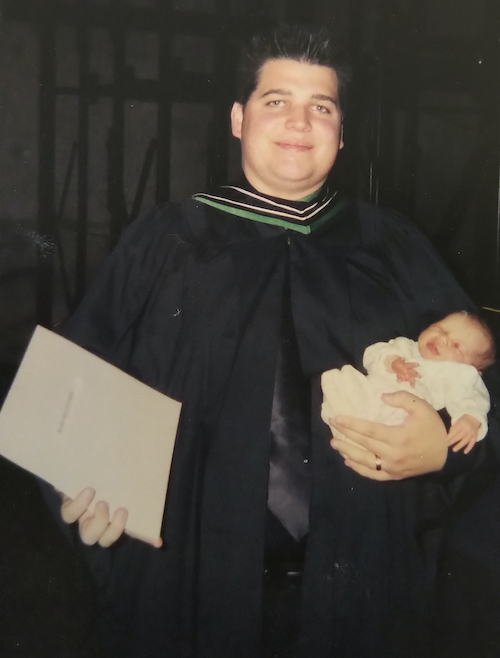
On a personal note, this week marks 20 years since I crossed Waterloo's convocation stage to receive a master's degree from the Faculty of Arts, a milestone I was able to celebrate alongside another milestone - a brand-new baby daughter. How time flies: 20 years ago, the Faculty of Arts had a single afternoon convocation ceremony instead of three discrete celebrations, and that two-week-old girl has finished her second year of university.
Celebrating Waterloo's graduating PhD students
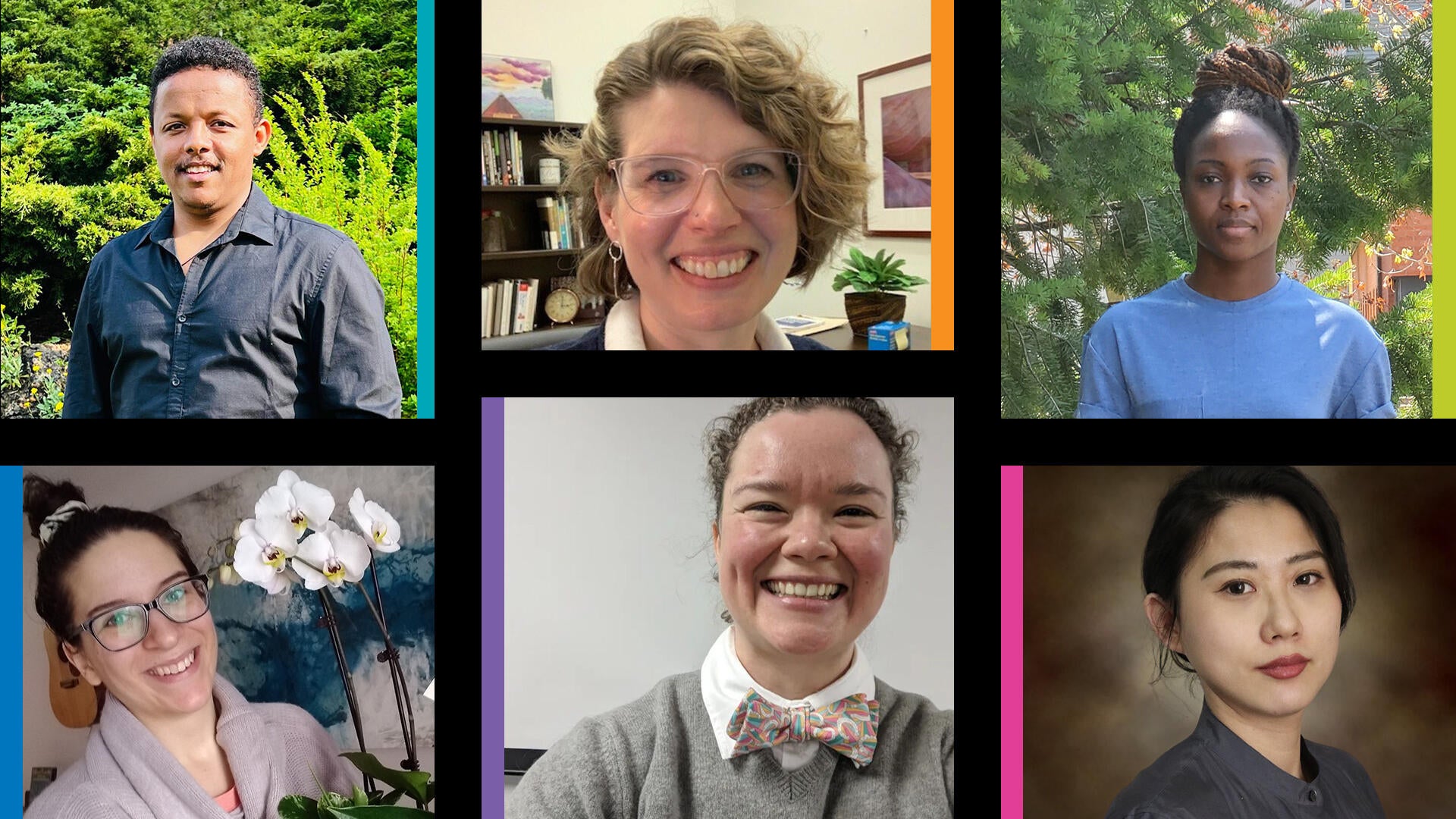
By Angelica Marie Sanchez. This article was originally published on Waterloo News.
For graduating PhD students, completing their dissertation defence is a significant milestone and convocation is an exciting time to celebrate their accomplishments with friends and family.
Six exceptional graduating PhD students have been chosen to share about their academic journey filled with innovation, resilience and passion. Read their stories below.
Faculty of Arts
Christin Wright-Taylor (PhD ’22) knew she wanted to pursue her Doctor of Philosophy in English at Waterloo because of its reputation of being one of the leading Canadian universities with a PhD program in Composition and Rhetoric.
“You know your scholarly mentors are rockstars when you hear their work being cited by keynote speakers at every major conference you attend,” Wright-Taylor says. “It was an absolute treasure learning from the likes of Dr. Jay Dolmage, Dr. Jennifer Clary-Lemon, Dr. Vinh Nguyen, Dr. Frankie Condon and Dr. Vershawn Ashanti Young.”
Wright-Taylor’s research explores how Canadian universities and colleges can provide better support for international students by looking at the relationship between second language writing and writing studies scholarships.
“I lived in three different countries by the age of 14 and have memories of the dislocation and culture shock associated with studying in a different culture,” Wright-Taylor says.
After having first-hand experience as both an international student and a writing teacher herself, Wright-Taylor knew she wanted to find a solution that helps bridge the gap between what is currently being offered in writing curriculums for domestic students and what institutions could offer for the new population of international writers. Wright-Taylor believes international students bring a different perspective to Canadian classrooms.
If she could give one piece of advice to other PhD students, it would be to take advantage of the writing appointments at the Writing and Communication Centre at Waterloo. “They helped me get past writers block on my dissertation. Special shout out to Stephanie White who was my go-to writing consultant!”
Wright-Taylor is most grateful for the excellent mentorship she received during her program at Waterloo. She recalls having a committee of advisors who were supportive at every step providing resources, valuable feedback and time throughout her dissertation process.
Currently, Wright-Taylor is a writing consultant for Writing Services at Wilfrid Laurier University. Here, she hopes to offer the best writing support for both her team and the students at Laurier while continuing to contribute to her research in the field of writing studies in Canada.
Faculty of Engineering
Madelaine Liddy’s (BASc ’14, PhD ’22) originally planned to go to medical school changed after completing her undergraduate studies in Nanotechnology Engineering at Waterloo. However, Liddy’s curiosity in quantum mechanics led her to pursue a Doctor of Philosophy in Engineering, where the program also allowed her to continue her interest in medicine through her research on how to improve quantum sensing techniques to create better medical diagnostic devices.
Liddy’s dissertation research focused on nitrogen vacancy centers which are quantum centers in a diamond lattice. When working with a quantum center at room temperature, it removes the need for any cryogenic cooling hardware that is commonly required for quantum mediums.
“This combined with its magnetic field sensing properties, makes it a great candidate for developing real world quantum sensing devices,” Liddy says. “These devices can be used for anything from sensing defects in blood or water, imaging nano sized magnetic fields or even for navigational purposes as an alternative to GPS.”
What advice would Liddy give to other PhD students? Never be afraid to ask for help.
“I really struggled with feelings of isolation and thinking I was the only one experiencing these challenges when that is so far from the truth,” Liddy says. “Opening up about these feelings was the key to finishing my degree!”
Some of Liddy’s fondest memories were made during the friendships she developed over the years, as well as being awarded the Dutch Liberation Scholarship, which led her to meet the King and Queen of the Netherlands.
Leaving Waterloo, Liddy says she will miss the people the most and the friendships she developed over the past 13 years. But says she won’t miss being chased by geese while riding her bike.
“I developed so many deep friendships at Waterloo, both over my time in my undergrad and graduate school,” Liddy says. “The subject matter and research I studied was also amazing, but I wouldn’t necessarily say I would miss either of those as I will carry them with me no matter where I go.”
Next for Liddy is a quantum resident position at Sandbox AQ in California starting in August 2022.
Faculty of Environment
Thelma Abu (PhD ’22) knew she wanted to pursue her PhD in Health Geography at Waterloo partly because she wanted to work closely with her PhD advisor, Dr. Susan Elliott, an accomplished health geographer whom Abu shares a similar interest in water security research. Abu was also drawn by Waterloo’s reputation for research innovation and the Water Institute being ranked as one of the top research institutions globally.
Abu’s dissertation research focused on understanding the factors and processes that shape access to water, sanitation and hygiene (WASH) services in healthcare facilities and the contribution of these services to emergency preparedness in health systems in Kisumu, Kenya.
“WASH services are necessary for infection prevention and control to ensure the safety of healthcare workers and patients,” Abu says. “The importance of these services cannot be overemphasized with the current COVID-19 pandemic. However, these services are woefully inadequate in health settings especially those located in informal settlements and rural areas.”
Her research calls for integrating WASH services in universal health coverage plans because access to water is a basic human right that should be prioritized globally.
Pursuing a PhD is a very demanding process and Abu recognizes that every academic journey is unique and filled with a range of emotions. She offers one piece of advice for other students pursuing their PhD:
“One thing that kept me going was researching an area I am passionate about, which is the reason why I started this journey in the first place. So, I will say do work in an area that brings you joy and makes you want to know more every day.”
Abu recalls taking a trip to the Niagara Falls region with her lab mates at the Water Institute as one of her fondest memories.
“I will miss my very supportive lab mates at the Geographies of Health in Place lab, I was very fortunate to have met each one of them. I will miss walking into the lab and brainstorming my ideas with them,” Abu says. “I built some lifelong friendships as well in this community that I will cherish eternally.”
Currently, Abu is a postdoctoral fellow at the University of Toronto Mississauga, working on health equity in the Greater Toronto Area. Abu also looks forward to accepting a tenure-track position as an assistant professor at a university in the United States.
Faculty of Health
Many things attracted Binyam Negussie Desta (PhD ’22) to Waterloo: the professors in the School of Public Health Sciences, a wide range of disciplines and opportunities, Waterloo’s reputation in globally impactful research and Dr. Shannon Majowicz, who not only shares a similar research interest and academic background as Desta but also accepted to be his mentor.
Desta’s research led a multi-partnered study called Foodborne Disease in Africa (FOCAL Project) which involved 11 partners from seven countries, providing the first population-level estimate of the epidemiology of acute gastrointestinal illness using an internationally comparable case definition in Ethiopia, Mozambique, Nigeria, and Tanzania. Desta added a secondary aim to his dissertation which explored the application of methods typically used to adjust for under-reporting of foodborne infections to COVID-19.
“Specifically, this second study aimed to better understand the extent of the COVID-19 infection in the general community in Toronto, Ontario, using only the available data during the first wave of the COVID-19 pandemic,” Desta says.
The secondary aim of the study demonstrated the usefulness of the method, while illustrating the factor that only a fraction of the total COVID-19 cases that occurred within the Toronto community was reported to the Toronto Public Health. The multi-study FOCAL project was co-funded by the Bill & Melinda Gates Foundation and the Foreign, Commonwealth and Development Office of the United Kingdom Government.
What advice would Desta give to other PhD students?
“Try to focus on your career goals, respect your values, stay positive and enjoy what you are doing,” Desta says. “Also tackle one thing at a time. Give it a shot, a fair one, then leave it.”
Desta sends sincere thanks to the Waterloo community for all the support, specifically his supervisor, Dr. Majowicz, for her exceptional guidance, encouragement and support throughout his PhD journey.
Currently, Desta is a postdoctoral fellow at Waterloo, working with Dr. Majowicz. Desta has also accepted a postdoctoral fellow at the Toronto Metropolitan University. “I will be working on epidemiological modelling research to investigate the impacts of environmental factors on recreational water [microbial] quality.”
Faculty of Mathematics
Meng Yuan (MMath ’17, PhD ’21) is a researcher in the Department of Statistics and Actuarial Science at Waterloo. Yuan’s research as a PhD student focused on refining statistical methods for two-sample density ratio models. Her work involved statistical models that combine two different but related data sets. Specifically, she looked at the methods used by statisticians to understand biometric and econometric data.
“It’s relevant to things like COVID-19 on the biomedical side, and to the Gini index of inequality on the economic side,” Yuan says. “But there are so many other applications.”
For her dissertation, Yuan was named one of the winners of this year’s Faculty of Mathematics Doctoral Prize.
During her time as a PhD student, Yuan also worked as an instructor at Waterloo where she enjoyed spending time in the classroom with students. She learned so much about teaching especially during the pandemic where online learning was a big adjustment for her students and for herself as a new instructor.
“I learned so much about teaching and I’m glad now to be able to bring some of those skills back in the face-to-face classroom,” Yuan says.
As for Yuan’s piece of advice for future PhD students? Have a team of supportive people who can cheer you on.
“I am so grateful to my supervisor and to all the wonderful people in the department who always made time for me,” Yuan says. “I am also lucky to have the support of my family, who never stopped cheering me on. And my boyfriend, who I shared a small apartment with all through the pandemic, was so supportive.”
Yuan will be continuing her postdoctoral fellow at Waterloo, picking up where she left off at the end of her PhD program.
Faculty of Science
Exiting high school, Heather Ikert (BSc ’16, PhD ’22) was interested in going to Waterloo because of the hands-on experience the co-operative education program offers for students. In her final co-op term, Ikert connected with Dr. Paul Craig for her fourth-year research project, and she would go on to complete her graduate studies in Dr. Craig’s lab.
“All in all, I came to the University of Waterloo for the co-op, but I stayed for the people.”
Graduating with a PhD in Biology, Ikert’s research studied the effects of climate change and pharmaceuticals on fish health, and to understand the molecular mechanisms of how fish respond to general stress.
“I was looking at a type of RNA called microRNA — cells use this to finetune which processes are occurring,” Ikert says. “Interestingly, I was able to measure these microRNA on the surface of the fish. As well in the water surrounding the fish, which could be a way to non-invasively monitor fish health.”
Ikert has many fond memories at Waterloo, but will never forget the caffeine experiment that her lab decided to perform. As regular patrons of the Math CnD cafe on campus, Ikert and her lab mates were trying to determine if drinking caffeinated or decaf coffee in the afternoon would have a negative effect on the sleep of one of their colleagues.
“The chance to combine our love of coffee with a bit of data analysis for no reason in particular was pretty jokes and a fun little foray into a different area of research,” Ikert says. No negative impact was found at the end of the study.
If she could give one piece of advice to other PhD students, it would be to choose a supervisor and a lab full of supportive people.
“A lot of scientists do cool research but having people to encourage you through the ups and downs of research and working with a supervisor who will prioritize your learning and opportunities for growth, is key,” Ikert says. “The Biology Department at the University of Waterloo o-fish-ially rocks, and the grad students there are super encouraging, involved and are just the best.”
What’s next for Ikert? After completing both a Bachelor and Doctor of Philosophy in Biology, Ikert will remain at the University of Waterloo as part of the Ontario Wastewater Surveillance Initiative, where she will be monitoring COVID-19 trends and variants in the wastewater for the Waterloo, Peel and York regions.
Waterloo at 100 update
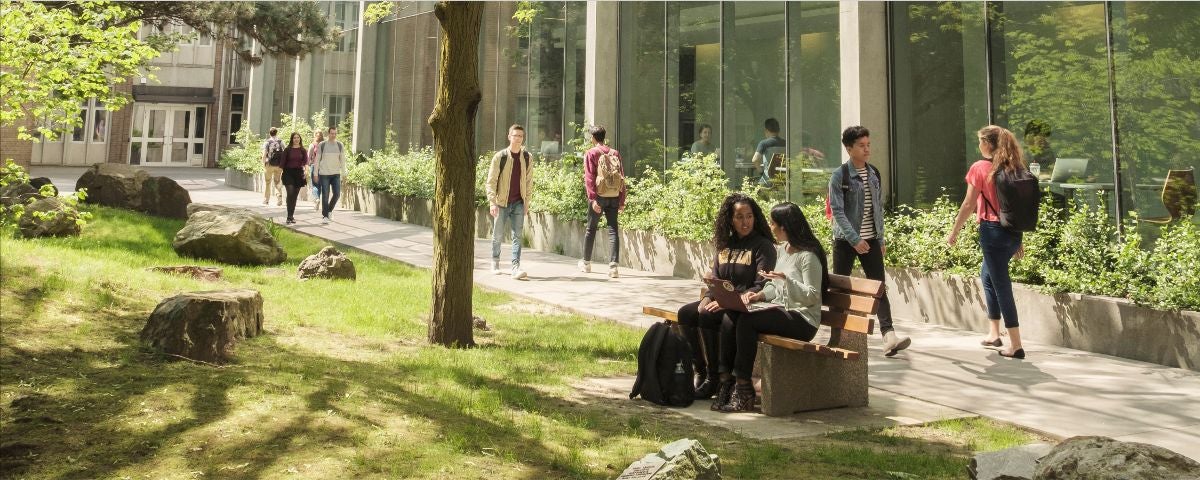
This article was originally published in the Waterloo at 100 e-newsletter.
With consultations underway for the Waterloo at 100 visioning exercise, we want to thank you and share a few insights we’ve heard from the University community.
As we listen to people sharing their thoughts about the vision for a bold future for this institution, we remain inspired by the question at the core of these consultations:
What do we, as an institution, aspire to become by our 100th anniversary in 2057?
Employees and students have shared ideas about how Waterloo can make significant impacts on five Futures: societal, technological, sustainable, health and economic. We have also received valuable input on how we can evolve by building on our areas of strength coupled with the differentiators that set us apart.
Here are some of the insights we’ve heard:
- As the University of Waterloo continues to evolve, we can be inspired by the innovative spirit that guided our founders in 1957. We started as a small, unconventional university in 1957 and we are now a large, globally renowned institution in which deeper and more effective collaboration is required to meet the complex challenges of the future.
- Our five Futures are interconnected. We must foster interdisciplinarity in teaching and research as scholars from across the arts, humanities, social sciences, physical sciences, engineering, mathematics and professional disciplines imagine solutions together.
- One of our founding differentiators — co-operative education— should evolve to ensure Waterloo continues to be at the forefront of experiential education globally. Work and society will continue to undergo rapid changes in the coming years which will open up new opportunities and require innovative approaches to work-integrated learning.
- We were founded by local business leaders, setting us up to be an institution that looks beyond its borders to solve real-world challenges. Our distinctive research environment is enriched by the institution’s long tradition of co-operative education and deep industry partnerships in the region and globally. This network encourages us to constantly develop research that is outward-facing.
- Fundamental, unconstrained research at Waterloo will continue to build the foundation for transformational and unimaginable discoveries in the decades ahead.
- We have to continue to work to ensure our campuses are sustainable and meet and exceed our goals set in the Shift: Neutral plan.
- Our programs, policies and procedures should be a model for a decolonized institution.
As we continue to meet with internal and external stakeholders this month and beyond, we encourage you to share the Waterloo at 100 webpage with your colleagues and networks where they can engage with the visioning exercise through a feedback form.
Thank you again for sharing your ideas as we prepare Waterloo to lead with a renewed sense of hope and bold ambitions for the future.
Wednesday's notes
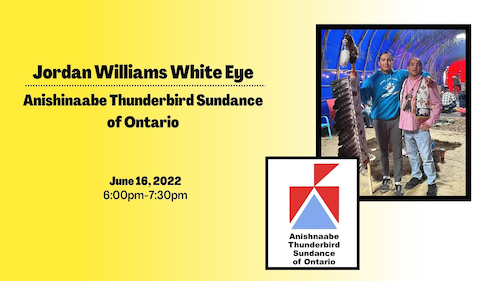
As part of National Indigenous History Month, the Office of Indigenous Relations is hosting a free webinar event entitled Jordan Williams White Eye: Anishinaabe Thunderbird Sundance of Ontario.
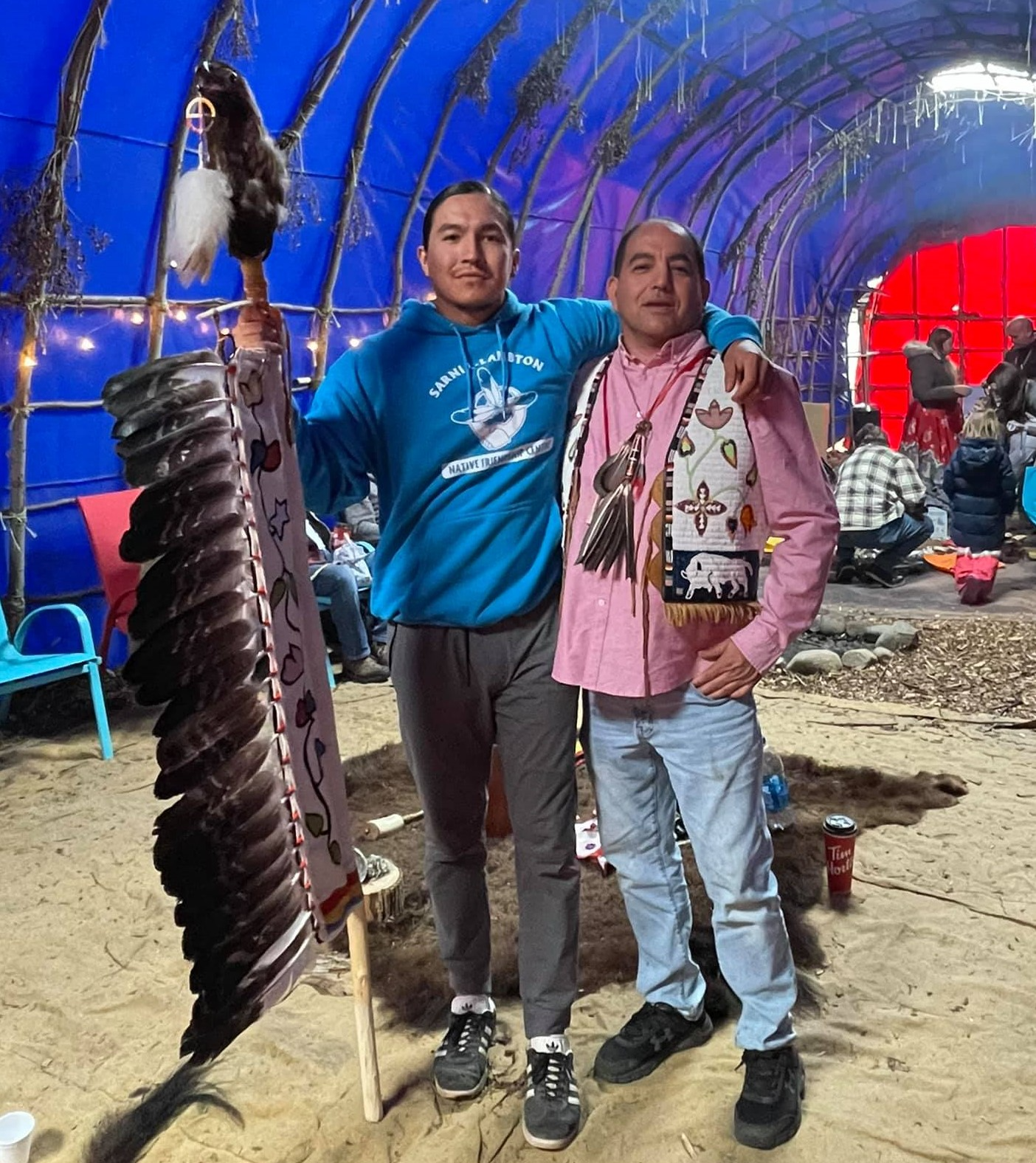
Jordan Williams White Eye is a passionate and dedicated Father from Bkejwanong First Nation. He is an Anishinaabe (Ojibway, Pottawatomi and Lenape) Spiritual Advisor, Knowledge Keeper, Pipe Carrier and Sweat Lodge Conductor, and he is the Caretaker/Leader of the Anishinaabe Thunderbird Sundance of Ontario.
For this upcoming event, Jordan will be speaking about the Anishinaabe Thunderbird Sundance of Ontario - a culture camp, where Indigenous folks connect with each other, tradition and culture, and spirit. Indigenous people from a rich variety of cultures and places gather here to participate in sacred ceremonies including fasting, sweat lodge, teachings, and sundance.
The event will be held on Thursday, June 16 from 6:00 p.m. to 7:30 p.m.
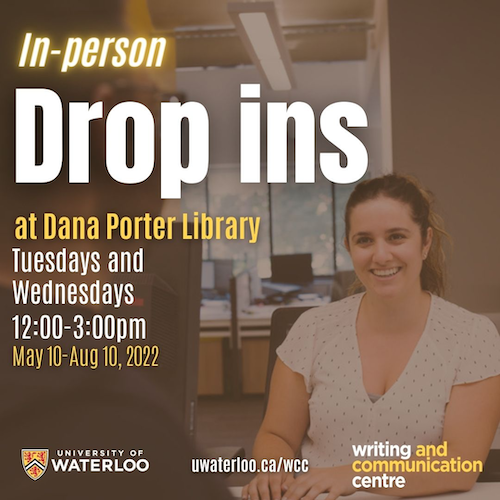
In-person drop-in appointments courtesy of the Writing and Communication Centre (WCC): "Dreading the submit button?" asks the WCC. "Our peer tutors can support you with any aspect of your writing. Visit us in Dana Porter library for in-person drop-in appointments on Tuesday and Wednesday from 12:00 noon to 3:00 p.m."
Upcoming office closure
Campus Wellness will be closed on Thursday, June 16 from 8:30 a.m. to 11:30 a.m. due to an all-staff meeting.
Link of the day
When and Where to get support
Students can visit the Student Success Office online for supports including academic development, international student resources, immigration consulting, leadership development, exchange and study abroad, and opportunities to get involved.
Instructors looking for targeted support for developing online components for blended learning courses, transitioning remote to fully online courses, revising current online courses, and more please visit Agile Development | Centre for Extended Learning | University of Waterloo (uwaterloo.ca).
Instructors can visit the Keep Learning website to get support on adapting their teaching and learning plans for an online environment.
Course templates are available within your course in LEARN to help you build and edit your content and assignment pages quickly.
The following workshops, webinars, and events are offered by the KL team (CTE, CEL, ITMS, LIB):
-
Scholarship of Teaching and Learning (SoTL) Methods – self-directed, continuous self-enrollment course in LEARN.
-
Independent Blended Course Design (iBlend) - self-directed, continuous self-enrollment course in LEARN.
-
Copyright Overview for Waterloo Instructors and Staff - self-directed, continuous self-enrollment course in LEARN.
-
Independent Remote Course Design Essentials (iReCoDE)- self-directed, continuous self-enrollment course in LEARN.
-
Supporting Student Mental Health (for Instructors) – self-directed, continuous self-enrollment course in LEARN.
-
SoTL Stories, Wednesday, June 15, 1:00 p.m. to 2:00 p.m.
-
NEW - Research & Reconciliation: Unsettling Ways of Knowing Through Indigenous Relationships: A Learning Circle Series (CTE7013), Thursday, June 16, 1:00 p.m.
Supports are available for employees returning to campus. Visit IST’s Hybrid Work and Technology guidelines and workplace protocols to assist with the transition.
The Writing and Communication Centre has virtual services and programs to help undergrads, grad students, postdocs and faculty members with academic writing.
- Meet with writing advisors in one-to-one appointments to brainstorm, draft, revise, and polish. No time for an appointment? Try email tutoring for undergrads.
- Beat isolation and make writing progress at weekly Virtual Writing Cafés for grad students and faculty or PJ-Friendly Writing Groups for Undergrads.
- Take an online workshop or apply to our popular Dissertation Boot Camp program.
- Faculty can request custom in-class workshops for their courses, or the WCC can facilitate any existing workshops for student groups.
- Course-integrated support available. Attention faculty and instructors: The application form for Writing and Communication Centre course-integrated support is now available online. We offer five unique support streams for your courses including synchronous and asynchronous workshops and monitored discussion boards.
Co-op students can get help finding a job and find supports to successfully work remotely, develop new skills, access wellness and career information, and contact a co-op or career advisor.
The Centre for Career Action (CCA) has services and programs to support undergrads, grad students, postdocs, alumni, and employees in figuring out what they value, what they’re good at, and how to access meaningful work, co-op, volunteer, or graduate/professional school opportunities. Questions about CCA's services? Live chat, call 519-888-4047, or stop by our front desk in the Tatham Centre 8:30 a.m. to 4:30 p.m., Monday to Friday.
Drop-in to Warrior Virtual Study Halls on Wednesdays from 5:30 p.m. to 7:00 p.m. Come together in this virtual space to set goals and work independently or in groups each week.
Renison's English Language Institute continues to offer virtual events and workshops to help students practice their English language skills.
If you feel overwhelmed or anxious and need to talk to somebody, please contact the University’s Campus Wellness services, either Health Services or Counselling Services. You can also contact the University's Centre for Mental Health Research and Treatment. Good2Talk is a post-secondary student helpline available to all students.
The Library is open with expanded hours for access to book stacks, drop-in individual study space, bookable group study rooms, drop-in access to computers and printers, book pick-up services and IST Help Desk support. Librarian consultations, Special Collections & Archives and the Geospatial Centre are available by appointment. Full details on current services and hours are available on the Library’s COVID-19 Update webpage.
The Faculty Association of the University of Waterloo (FAUW) continues to advocate for its members. Check out the FAUW blog for more information.
The University of Waterloo Staff Association (UWSA) continues to advocate for its members. Check out the UWSA blog for more information.
The Sexual Violence Prevention and Response Office (SVPRO) supports all members of the University of Waterloo campus community who have experienced, or been impacted, by sexual violence. This includes all students, staff, faculty and visitors on the main campus, the satellite campuses, and at the affiliated and federated Waterloo Institutes and Colleges. For support, email: svpro@uwaterloo.ca or visit the SVPRO website.
The Office of Indigenous Relations is a central hub that provides guidance, support, and resources to all Indigenous and non-Indigenous campus community members and oversees the University's Indigenization strategy.
The Waterloo Indigenous Student Centre, based at St. Paul’s University College, provides support and resources for Indigenous students, and educational outreach programs for the broader community, including lectures, and events.
WUSA supports for students:
Peer support - MATES, Glow Centre, RAISE, Women’s Centre - Visit https://wusa.ca/services/wusa-peer-support to book an appointment either in person or online for the Fall term.
Food Support Service food hampers are currently available from the Turnkey Desk 24/7 in the Student Life Centre. Drop off locations are also open again in SLC, DC, DP, SCH and all residences.
Co-op Connection all available online. Check https://wusa.ca for more details.
Centre for Academic Policy Support - CAPS is here to assist Waterloo undergraduates throughout their experience in navigating academic policy in the instances of filing petitions, grievances and appeals. Please contact them at caps@wusa.ca. More information is available.
WUSA Student Legal Protection Program - Seeking legal counsel can be intimidating, especially if it’s your first time facing a legal issue. The legal assistance helpline provides quick access to legal advice in any area of law, including criminal. Just call 1-833-202-4571.
Empower Me is a confidential mental health and wellness service that connects students with qualified counsellors 24/7. They can be reached at 1-833-628-5589.
GSA-UW supports for graduate students:
The Graduate Student Association (GSA-UW) supports students’ academic and social experience and promotes their well-being.
Advising and Support - The GSA advises graduate students experiencing challenges and can help with navigating university policies & filing a grievance, appeal, or petition.
Mental Health covered by the Health Plan - The GSA Health Plan now has an 80 per cent coverage rate (up to $800/year) for Mental Health Practitioners. Your plan includes coverage for psychologists, registered social workers, psychotherapists, and clinical counselors.
Dental Care - The GSA Dental Plan covers 60 to 70 per cent of your dental costs and by visiting dental professionals who are members of the Studentcare Networks, you can receive an additional 20 to 30 per cent coverage.
Student Legal Protection Program - Your GSA fees give you access to unlimited legal advice, accessible via a toll-free helpline: +1-833-202-4571. This advice covers topics including housing disputes, employment disputes, and disputes with an academic institution.
The Graduate House: Open Monday to Tuesday 11:30 a.m. to 7:00 p.m. and Wednesday to Friday 11:30 a.m. to 9:00 p.m. We’re open to all students, faculty, staff, and community members. The Graduate House is a community space run by the GSA-UW. We’re adding new items to the menu. Graduate students who paid their fees can get discounts and free coffee.
When and Where (but mostly when)
Warriors vs. Laurier Blood Donation Battle. Join our “Waterloo Warriors” team on the Blood.ca website or app. #ItsInYouToGive
Spring Convocation, Tuesday, June 14 to Saturday, June 18.
Water ecosystem service valuation for watershed security – information gaps and policy needs, presented by Marian Weber. Part of the Water Institute's webinar series: The Value of Water in Canada, Wednesday, June 15, 12:00 noon.
Distinguished Lecture Series, “A Personal and Historical View of Computational Mathematics,” featuring Tony Chan, President, King Abdullah University of Science and Technology, Wednesday, June 15, 2:00 p.m., DC 1302. Also live streamed.
The Problem Lab presents Find Your Missing Bottom Line, Thursday, June 16, 6:00 p.m.
Jordan Williams White Eye: Anishinaabe Thunderbird Sundance Of Ontario, Thursday, June 16, 6:00 p.m. Register on Ticketfi.
Brubacher House Artist-in-Residence Workshops, "June Art Classes with Yulia Balobanova," Saturday, June 18, 3:30 p.m., BRH (Brubacher House, North Campus). Adults and youth ages 11+.
Summer Lights Festivalcelebrates its last year on Saturday, June 18, 8:00 p.m. - 12:00 a.m. in downtown Kitchener.
WaterTalk: A holistic approach to monitoring abrupt environmental shifts in the Kluane Lake region, presented by Emily S. Huff, Monday, June 20, 10:00 a.m., EV3 3412.
University Senate meeting, Monday, June 20, 3:30 p.m.
WISE Public lecture, “Decarbonization Pathways and Flexibility Requirements in the Chilean Electric Power System,”by Daniel Eduardo Olivares Quero, Tuesday, June 21, 12:00 p.m. to 3:00 p.m., In-person at Davis Centre, Room # 1302, and Virtually on Zoom.
Quantum Perspectives: Communication, Tuesday, June 21, 12 noon.
Artist Talk: On the Land, Tuesday, June 21, 12:15 p.m.
NEW - Entrepreneurial Ph.D. Fellowship Information Session Wednesday, June 22, 12 noon to 1:00 p.m., Zoom. Registration required.
Master of Taxation, Virtual Information Session, Wednesday, June 22, 5:30 p.m. To register visit www.mtax.ca.
CIHR Commercialization (CMZ) Peer Review Committee Information Session, Thursday, June 23, 12:00 noon to 1:30 p.m., Zoom. Speaker: Dr. Kathleen Marsman, Chair of CIHR CMZ Peer Review Committee. Registration required.
NEW - Retirement open house for Linda Beaulieu, Thursday, June 23, 12 noon to 2:00 p.m., E2-1772.
Positions available
On this week's list from the human resources department, viewable on the UWaterloo Talent Acquisition System (iCIMS):
- Job ID# 2022-8191 - Health Information Specialist - Campus Wellness, USG 8
- Job ID# 2022-8195 - Administrative Coordinator - Campus Wellness, USG 6
- Job ID# 2022-8436 - Finance Coordinator - Campus Wellness, USG 6
- Job ID# 2022-8597 - Director, Quantum-Nano Core Fabrication & Characterization Facility - University Research, USG 17
- Job ID# 2022-8650 - Learning and Development Specialist - Organizational and Human Development, USG 8 – 10
- Job ID# 2022-8657 - Manager, HR Systems and Reporting - Human Resources, USG 11
- Job ID# 2022-8455 - Project Coordinator - Print + Retail Solutions, USG 6
- Job ID# 2022-8556 - New Student Transition Specialist (Graduate students) - Student Success Office, USG 9
- Job ID# 2022-8593 - Coordinator, Academic Success (Programs) - Student Success Office, USG 7
- Job ID# 2022-8595 - Cross Campus Advising Specialist - Student Success Office, USG 9
- Job ID# 2022-8190 - Senior Manager, Co-op Student Experience - CEE - Co-operative Education, USG 11
- Job ID# 2022-8518 - Communications Officer - Optometry and Vision Science, USG 8
- Job ID# 2022-8549 - Biology Laboratory Technician - Plant Sciences and Ecology – Biology, USG 8
- Job ID# 2022-8550 - Biology Laboratory Technician – Microbiology – Biology, USG 8
- Job ID# 2022-8568 - Coordinator - Continuing Professional Development - Optometry and Vision Science, USG 8
- Job ID# 2022-8575 - Student Advisor (Toronto West) - CEE - Co-operative Education, USG 8 – 9
- Job ID# 2022-8579 - Systems Integration Specialist (Azure Specialist) – IST, USG 11 – 12
- Job ID# 2022-8552 - Specialist, Teaching Assessment Processes - Associate Vice-President, Academic, USG 9
- Job ID# 2022-8580 - Research Project Accountant - Office of Research, USG 9 – 11
- Job ID# 2022-8368 - Electrical Engineer - Plant Operations, USG 11 - 13
Secondments/Internal temporary opportunities
- Job ID# 2022-8561 - Finance Coordinator - Campus Wellness, USG 6
- Job ID# 2022-8570 – Receptionist - AccessAbility Services, USG 4
- Job ID# 2022-8649 - HR Coordinator - Human Resources, USG 5 – 7
- Job ID# 2022-8660 - HR Partner, Workforce Planning - Human Resources, USG 8 – 11
- Job ID# 2022-8592 - Academic Development and Retention Specialist - Student Success Office, USG 10
- Job ID# 2022-8566 - Account Manager - Toronto West - CEE - Co-operative Education, USG 10 – 11
- Job ID# 2022-8530 - Research Development Officer - 5477 VP Research, USG 12
- Job ID# 2022-8578 - Engineering Admissions Specialist - Engineering Undergraduate Office, USG 8
Affiliated and Federated Institutions of Waterloo opportunities